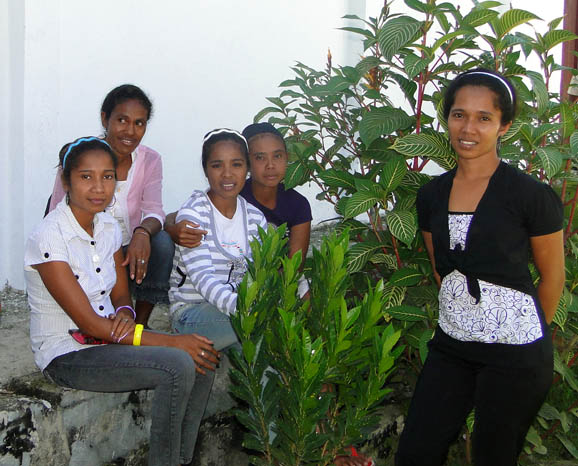

Protecting Timor Leste’s women

Shortly after the Pacific nation of Timor-Leste became independent in 2002, a study found that three quarters of married women have suffered physical or sexual violence at the hands of their husbands or partners. Nearly 40% of women overall have been the victims of assaults.
Severely taxed by its decades-long struggle for independence, Timor-Leste had scanty infrastructure. The police and justice system had limited capacity to deal with violence, there were no legal mechanisms to prevent and punish gender-based crimes, and there were little to no social services to respond to victims of violence, exploitation and abuse, especially in rural areas.
Most importantly, gender awareness among different sector of the society, including local leaders, was low.
But this past summer, following extensive support from the MDG-F-funded joint UN programme, Timor-Leste passed its Law against Domestic Violence, and approved a $400,000 budget for its implementation. National action plans on gender-based violence and human trafficking are being finalized, and referral and services protocols for victims of violence are in development.
The MDG-F is helping local NGOs provide more than 1,600 victims of gender-based violence with emergency medical care, psycho-social care, legal support, temporary accommodation and reintegration support through six shelters.
The joint programme is also funding extensive awareness-raising campaigns on gender-based violence, child rights and human trafficking aimed at police, government officials, members of local councils and the general public. This includes trainings; manuals; radio, television and newspaper announcements; and the distribution of T-shirts, caps, umbrellas, posters and fact sheets with messages on gender-based violence.
Finally, the joint programme is assisting the Timor-Leste government to develop gender-sensitive budgeting tools for use in drawing up the state budget.
“Supporting Gender Equality and Women’s Human Rights in Nation-building of Timor-Leste” is a collaboration between UNICEF, UNFPA, UN Women, IOM, UNDP and the Timor government. It is part of the MDG-Fund’s efforts to assist countries in reaching the anti-poverty Millennium Development Goals, with particular focus on improving life for the most vulnerable groups, including women and youth.